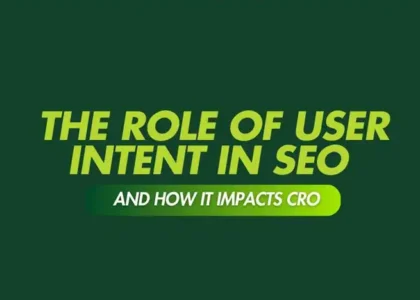Effective search engine optimization (SEO) is indispensable for the vitality and triumph of every e-commerce website. The ability of potential customers to make online purchases hinges on their ability to locate your site. To secure a prominent position in search engine results for your desired keywords, meticulous optimization of your website is imperative.
Explore the following tips on e-commerce SEO to discover methods for attracting visitors to your website and converting them into customers.
5 eCommerce SEO Tips to Increase Organic Traffic
- Incorporate Structured Data into your E-commerce Website
- Enhance Your On-Page SEO by Optimizing Product Images
- Refine Your URL Structure for Enhanced E-commerce SEO
- Master the Art of Internal Linking
- Avoid Duplicate Content
The inclusion of structured data markup is a valuable enhancement for your e-commerce website, as it enables search engines to furnish users with additional details about your products directly in the search results. This serves as an added incentive for users to click!
Present your star rating, number of reviews, price, and availability to boost click-through rates (CTR) and enhance the overall user experience for your customers.
If you have the technical expertise and have developed your e-commerce site, you can personally integrate structured data. Numerous guides are available to assist you, such as the one provided by Google Developers, which furnishes ready-to-use code for various features. If you require assistance, consult with your developer, who can quickly assist you in its implementation.
Images serve as a powerful on-page SEO tool for any e-commerce website, making it crucial to avoid the common mistake of utilizing low-quality images. Similar to customers wanting to visually inspect food before ordering, they also seek comprehensive views of products before making a purchase.
To optimize your e-commerce site’s image content, ensure uploaded photos are high quality while keeping file sizes under 100 KB to prevent compromising website loading speed. Additionally, improve visibility on image searches by incorporating relevant keywords into alt text for each image. Use descriptive words in file names rather than generic labels like "image 1" to provide a clearer representation of the product.
URLs play a pivotal role in user experience and can significantly contribute to the success of your e-commerce SEO endeavors. Not only do they offer site visitors insights into the content of a link, but they also communicate the essence of the page to search engines.
Steer clear of overly long URLs laden with numbers and devoid of relevant keywords. Opt for concise and descriptive URLs, such as yourwebsite.com/diffusers/white-ceramic-diffuser, for a product page showcasing a white ceramic diffuser. Including the pertinent keyword in the URL contributes to a more effective site structure, elevates your search engine ranking, and attracts a larger audience to your products.
Effectively linking to your product and category pages within your website sends a clear signal to Google about their significance. This process, known as "link equity" or "link juice," involves transferring authority from one page to another.
While external backlinks from high-authority websites have a more substantial impact, internal linking within your own content also plays a valuable role in enhancing e-commerce SEO. If you maintain a blog, strategically include internal links to your products within articles. This not only provides a minor boost but also introduces relevant new products to your customers.
Ensure the creation of consistently unique content to prevent self-cannibalization of your website and potential harm to your search engine ranking.
When dealing with multiple skin products, the temptation may arise to employ identical product descriptions with minimal alterations. However, this approach is an error. Strive to generate distinctive descriptions whenever feasible.
For products resold from the manufacturer’s website, refrain from mere copying and pasting of their descriptions. Opt for original content creation. If needed, enlisting the expertise of a dedicated SEO professional can effectively address these concerns, leading to increased website traffic and enhanced authority.
How do you measure the effectiveness of your E-commerce SEO strategy?
Irrespective of the e-commerce SEO approach you adopt, it is essential to monitor your advancements and outcomes to refine the online shopping experience and drive increased traffic to your website.
Tools like Google Analytics and Google Search Console prove invaluable for this purpose. Here’s how they can contribute:
- Google Analytics: This tool aids in identifying and converting keywords, assessing leads from organic search, evaluating top-performing content, scrutinizing referral traffic sources, and more. Initiating with Google Analytics is outlined here.
- Google Search Console: Utilize this tool to analyze queries generating the most organic traffic, assess the click-through rate (CTR) of product pages, manage the indexing of category pages, monitor URL performance, and more. Further insights on leveraging Search Console are available here.
In Conclusion
Implementing these five e-commerce SEO tips, backed by strategic keyword integration and the guidance of a reputable SEO company, can significantly enhance your online store’s visibility and drive more organic traffic.
With the right expertise from an SEO company, you can navigate the digital landscape, elevate your search engine ranking, and ultimately attract a broader audience to your e-commerce platform.





